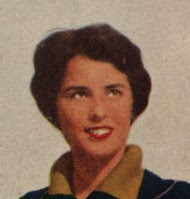Aki Kaurismäki | Finland, Sweden | 1989 October 29, 2012
Leningrad Cowboys Go America
Il giorno della prima di Close Up (original title) | Nanni Moretti | Italy, France | 1996 | Short, 7 min October 28, 2012
Opening Day of Close-Up
La coquille et le clergyman (original title) | Germaine Dulac | France | 1927 | Short, 31 min October 28, 2012 The Se...
The Seashell and the Clergyman
October 28, 2012
ทีมพากย์พันธมิตร | Rian Johnson | USA | 2012 October 28, 2012
ทะลุเวลา อึดล่าอึด | Looper
Alex Kurtzman | USA | 2012 October 27, 2012
Le notti di Cabiria (original title) | Federico Fellini | Italy | 1957 October 27, 2012
Nights of Cabiria
Kim Min-Suk | South Korea | 2010 October 27, 2012
Charles Chaplin | USA | 1931 October 27, 2012
Marc Webb | USA | 2012 October 26, 2012
Lorene Scafaria | USA et al. | 2012 October 23, 2012
Seeking a Friend for the End of the World
Felix Chong and Alan Mak | China | 2012 October 22, 2012
Peter Greenaway | UK | 1978 | Short, 12 min October 21, 2012
Water Wrackets
Peter Greenaway | UK | 1976 | Short, 17 min October 21, 2012
Tomas Alfredson | UK et al. | 2011 October 21, 2012
Tinker Tailor Soldier Spy
ยุทธเลิศ สิปปภาค | 2554 / 2011 October 21, 2012
หมาแก่ อันตราย | Friday Killer
Jean Painlevé | France | 1939-45 | Short, 9 min October 20, 2012 Directed by Jean Painlevé (1902-1989). Cine...
Le Vampire
Symphonie diaganale (original title) | Viking Eggeling | Germany | 1924 | Short, 7 min October 20, 2012 Diagonal Symph...
Diagonal Symphony
October 20, 2012
Diagonal Symphony. Directed by Viking Eggeling (1880-1925). Completed in the fall of 1924 and shown for the first time on November 5, 1924 in Berlin.
Swedish painter and avant-garde filmmaker Eggeling went to Paris at 17, then later joined the Dada movement in Switzerland. He began a close association with Hans Richter in 1918. Eggeling was the only Swedish dadaist. He labored for three years completing thousands of drawing that were necessary to animate his "scroll painting." The result, Diagonal Symphony, was a landmark in abstract cinema, a unique examination of delicate and almost art deco tones and lines. It was greatly admired by members of the Bauhaus.
Eggeling was interested in the creation of visual analogs to musical composition and in his notes, has cited the composer and music theoretician Ferrucio Busoni as an inspiration.
"Diagonal Symphony aspires to musical form. Eggeling conceived of the film screen as a network or axes; two diagonal co-ordinates crossing the screen like and 'X' and extending in depth into the vanishing point... The total evolution of the film occurs in waves; scenes become more complex or simplify; sections of the film repeat themselves directly, or with some form of inversion."
—P. Adam Sitney
Cinema, A Critical Dictionary
Vormittagsspuk (original title) | Hans Richter | Germany | 1928 | Short, 9 min October 20, 2012 Ghosts Before Breakfast...
Ghosts Before Breakfast
October 20, 2012
Ghosts Before Breakfast. Designed and directed by Hans Richter (1888-1976). Shot in Berlin in 1927-1928 for showing at the 1928 International Music Festival of Baden Baden. Photographed by Reimar Kuntze (1902-1949). Cast: Paul Hindemith, Darius and Madeleine Mihaud, Jean Oser.
Painter, filmmaker and theoretician Richter became involved in the activities of the Dada movement in Switzerland and Germany and was eventually recognized as Germany's most important exponent of surrealism. When the Nazis took over, he emigrated to the US.
The Nazis destroyed the sound version of this charming work as "degenerate art." An absurdist comedy in which everyday objects (hats, ties, coffee cups) rebel against their daily routine, the film defies all conventions, cinematic and social alike. Its fantasy elements are a nod to the trick films of early cinema and American slapstick comedies, but its particular with belongs to the world of Dada.
Critic Ed Lowry noted: "The liberation of objects from their functional roles, in a total rebellion against their owners, against logic, against the laws of time and space, becomes a joke on the narrowly defined, stuffy lives of the bourgeoisie, the society which defines itself by the clock. Utilizing time-lapse photography, pixillation and split screen, Richter creates a delightful bit of film trickery that challenges our perception of the cinema."
+3.jpg)
+6.jpg)
+8.jpg)
+9.jpg)
.jpg)
.jpg)
.jpg)
.jpg)
.png)
.png)
.png)
.png)
.png)
.jpg)
.jpg)
+1.jpg)

+5.jpg)
+6.jpg)
+7.jpg)

+1.jpg)

+5.jpg)
+1.jpg)
+1.jpg)
+1.jpg)
+2.jpg)
+3.jpg)
+4.jpg)
+5.jpg)
+1.jpg)
+2.jpg)
+3.jpg)
+4.jpg)
+7.jpg)
+1.jpg)
+1.jpg)















+2.jpg)
.jpg)
.jpg)
.jpg)

+4.jpg)
+1.jpg)
+1.jpg)
.jpg)
+2.jpg)

0 comments:
Post a Comment